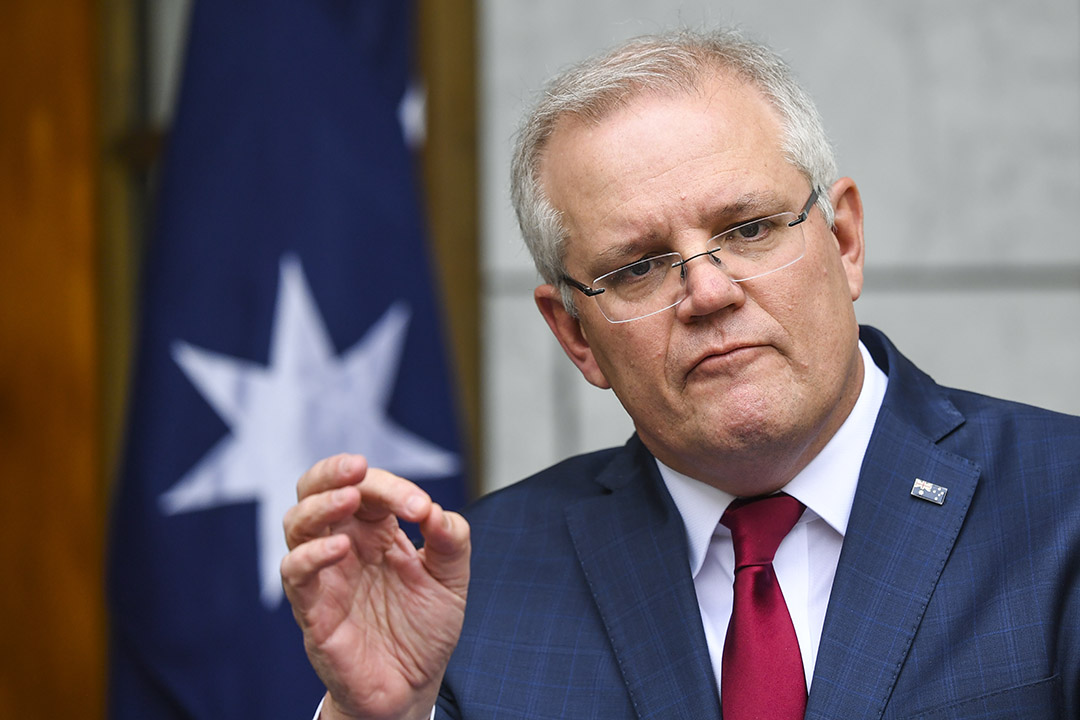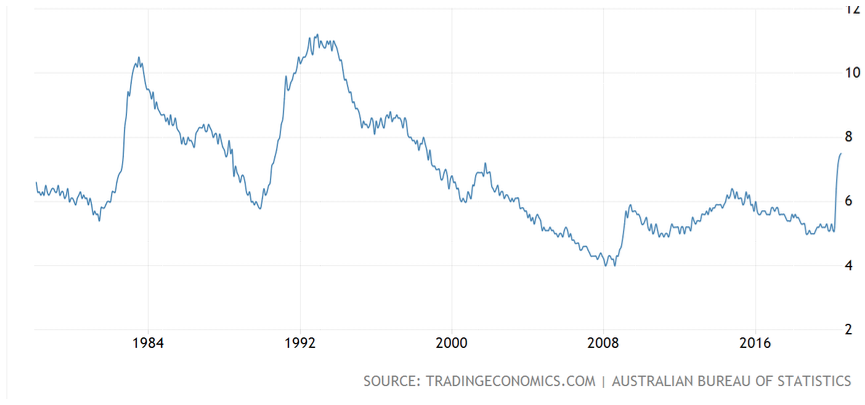

It’s a political super blue between the ScoMo Government and Labor, where the latter has to support their union buddies that dominate the very useful and valuable industry super groups. These great mainstays of super have copped a slug from the Coronavirus ‘super suck out’ measure that allowed Aussies to withdraw up to $20,000 from their funds to help them cope with the terrors/restrictions of COVID-19.
And what these super funds and Labor want to fight about now is the Government’s desire to defer the rise in the compulsory super charge on employers, on behalf of employees. Now set at 9.5%, the amount is set to go to 12% gradually to 2025.
Backbenchers are telling the PM that he should delay the scheduled 0.5% increase next year. They’re virtually saying because of the ‘kick in the guts’ for the economy by this damn virus, we now need spenders not savers!
As someone who has a business that makes money helping people to build their wealth via saving and investing, I really like industry super funds. But I also like the economy providing jobs and income. Our economy currently needs spenders, not savers.
When I taught economics at the University of New South Wales, students who’d never studied economics before were surprised when I told them that if everyone in the economy was encouraged to save more (and surprisingly if everyone did it), then we’d probably save less!
Economists call this the Paradox of Thrift. The only way to beat more savings leading to less savings is to have big injections of demand say from huge exports, big government spending or massive business investment.
Sure, we have big government spending but business is too scared to invest and the world economy isn’t positive for an exporter like Australia at the moment. So stopping local consumers from spending now when we’re in recession simply doesn’t make economic sense.
This is an important test for Anthony Albanese as a Labor leader. He has to embrace the good economic sense of former Labor leaders like Bob Hawke, if he wants to throw off the tag that his party in government isn’t good at economic management.
The RBA and the often-leftish Grattan Institute are siding with the Government on this, with the central bank worried about the economy and its ability to create jobs. Grattan is concerned that super rises will impede wage rises.
You’d have to be an economic neanderthal to argue with those two positions. But Labor and the super industry point to the implications for Australians in retirement being left poorer if the super levy rises are deferred or even cancelled.
Senator Jane Hume is the Assistant Minister for Superannuation, Financial Services and Financial Technology and understands the economics of the argument. “People need to understand that there is a trade-off — if their wages don't go up over the next five years and they are scratching their head and wondering why, you can say: ‘Well, actually your super guarantee has gone up’.”
Against this, former Labor Minister and now Industry Super Australia chairman Greg Combet, thinks we can get growth of the economy and wage rises along with higher super. “In the 1990s for example, Australia was coming out of a deep recession [and] there was a 7 per cent increase in the super guarantee. During that decade, wages grew, the economy grew and jobs grew,” said Combet in the SMH today. “If you look at the last seven years, there has been no super guarantee rise, no wages growth and all labour productivity benefits have accumulated to business.”
There is an element of truth in Mr Combet’s story but something also has been left out: over that time, unemployment stayed stubbornly high. The chart below shows the jobless rate went over 11% and even after a decade, it was still over 6%.
Also in 1996, unemployment was still over 8%. That’s when the Keating Labor Government was dumped for John Howard’s Coalition team.
Check out this graph below on unemployment. (By the way, I’ve put it in to remind myself that I am economics trained!!)

Note how the jobless rate continued to fall to below 4%!
I’m a great fan of super and industry super but given our recession, we should delay super rises until the economy is rocking. Then we should think about playing super catch up.
Also, a lot of young people would prefer to have more of their money to qualify for a home loan to gain access to another great asset for future retirement called property.
Combet’s former Labor colleague Paul Keating explained a lot of politics to me as a younger man when he told us something very similar to what his mentor Jack Lang once said: “Always back the horse named self-interest, son. It'll be the only one trying.”